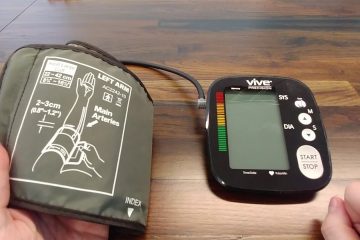Most Common Hearing Impairment Disorders and Treatment Plans as Suggested by Audiologists

Doctor inserting hearing aid in man's ear
Ears are one of the most important organs that control and maintain the body’s balance and well being. And, they’re equally susceptible to getting damaged by loud noises, constant exposure to varying frequencies and pitches, and different medical conditions like concussion, neurological disorders, and so on. And the result is impaired hearing that causes not just stress and anxiety but also interferes with the day-to-day life. That’s because, impaired/compromised hearing can cause the following problems.
- Dizziness
- Nausea
- Inability to navigate in the darkness
Precisely, it’s necessary that your ears stay safe and sound. Which is why you must seek the aid of reputable audiologists at vertigo clinics like Audiologie Centre-Ouest. This is a full-fledged hearing center that offers tests and treatments services for infants, toddlers, teenagers, adults, and musicians. And the guide below will take you through a couple of such screenings and treatments offered by the experts at this clinic. Have a look!
1. Tinnitus Impairment Detection and Treatment
Audiologists at Audiologie Centre West have designed a Tinnitus Functional Index questionnaire that patients have to fill. The TFI score is then used to understand the degree of tinnitus advancement. The two most successful therapies to help patients deal with the constant irritating noises are:
- Tinnitus Rehabilitation Therapy
- Zen Therapy
The different benefits of these therapies are as follows.
- It reduces anxiety and stress.
- It improves the sleep quality.
- It reduces the perception of buzzing and ringing noise in the ears that helps in improving focus.
2. Balance Disorders Assessments and Treatment Plans
The different techniques and non-invasive balance disorder detection assessments and tests by reputable audiologists include the following.
- VNG test
- Oculomotor assessment
- Oscillopsia assessment for visual perception
- Benign positional paroxysmal vertigo (BPPV) evaluation
The vestibular rehabilitation plans and programs offered depend upon the severity of the disorder. Have a look!
- You have to attend 5 in-clinic sessions that do not last for more than 15 minutes each to improve the condition.
- For mild cases – you need to take a 1 hour in-clinic session. You have to repeat the exercises at home and make a 30 minute followup in-clinic session after four weeks.
- For moderate cases – there’s a 1 hour in-clinic session followed by a phone consultation after 3 weeks, a 45 minute in-clinic session, another phone consultation after 3 weeks, and a final in-clinic session of 30 minutes.
- For severe cases – every step is the same as for moderate cases. The only difference is that what’s the last in-clinic session in moderate cases is actually a session to discuss the further course of treatment in severe cases.
All in all, no matter the age, you should undergo hearing assessments from time to time to ensure that you’re not suffering from any hearing disorder that might blow up if not detected and treated.
The plans and programs for vestibular rehabilitation douglas ga offered depend upon the severity of the disorder. Have a look!









